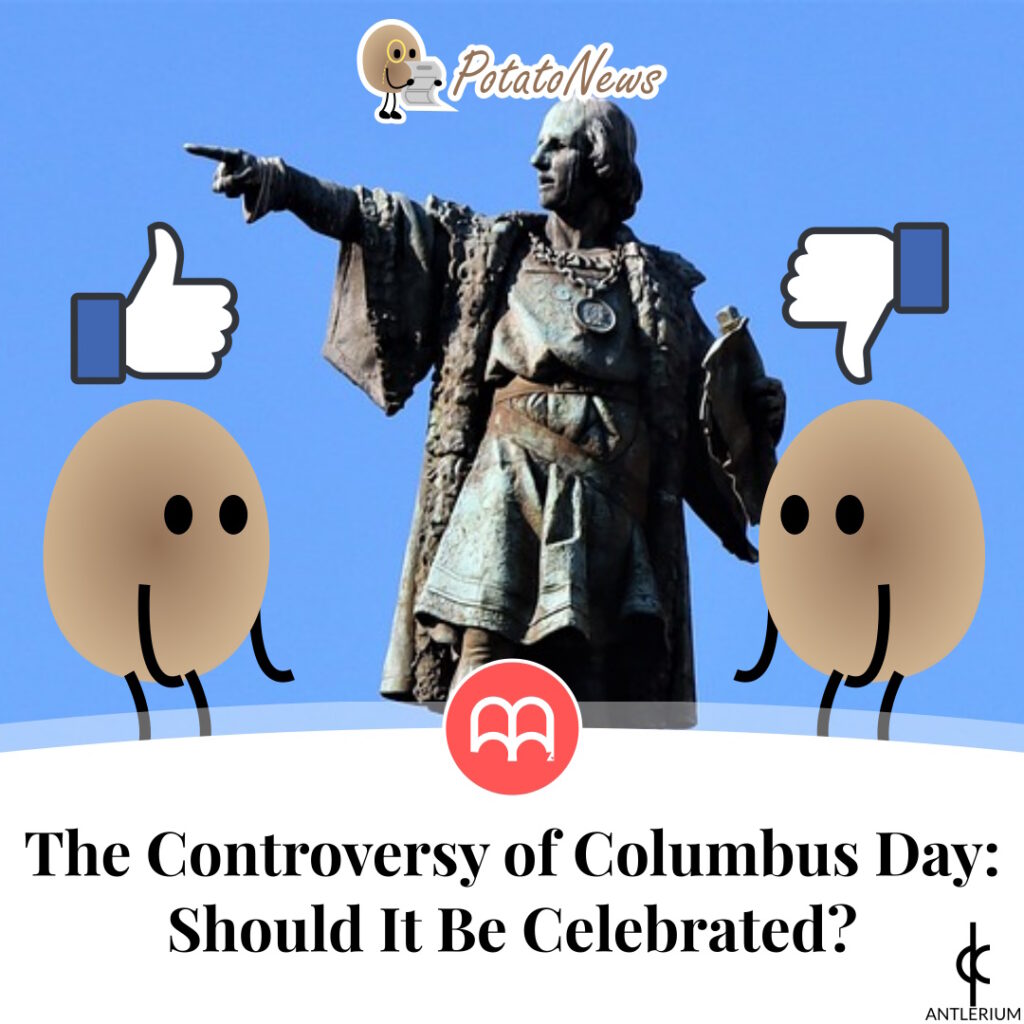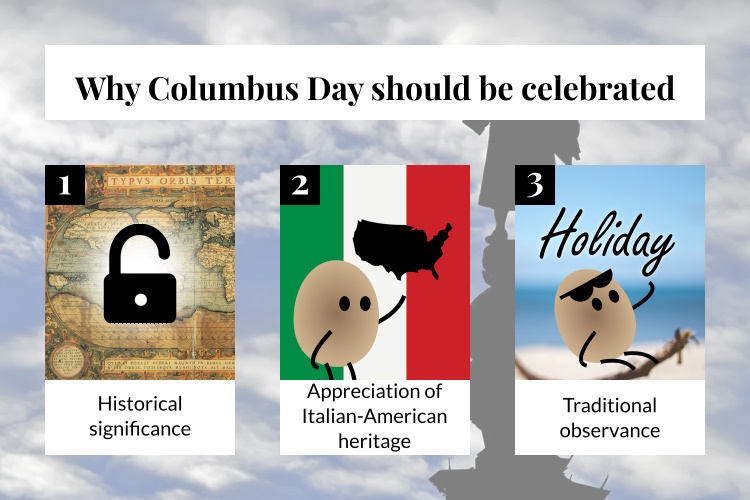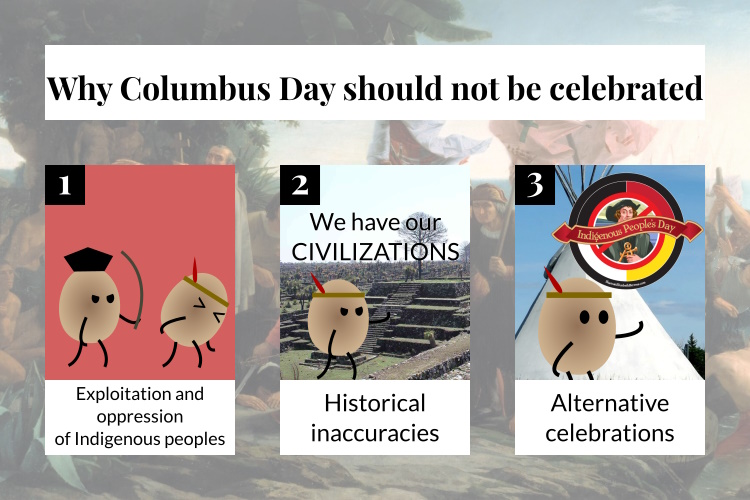The Controversy of Columbus Day: Should It Be Celebrated?
Columbus Day, observed on the second Monday of October in the United States, has long been a subject of controversy. While it has been celebrated for centuries as a holiday to honor Christopher Columbus's arrival in the Americas, there are valid arguments both for and against its observance.
In this article, we will explore the reasons why Columbus Day should be celebrated and why it should not.
This is Antlerium PotatoNews, a series focusing on the daily lives of ordinary people, including cultural customs. Today we explore the controversy of Columbus Day.

Why Columbus Day should be celebrated
1. Historical significance
Columbus Day has been celebrated for centuries as a way to commemorate Christopher Columbus's historic voyage in 1492. His arrival in the Americas marked the beginning of European exploration and colonization, which had a profound impact on world history.
Columbus's expedition opened up new possibilities for trade, cultural exchange, and scientific discovery, eventually leading to the establishment of modern nation-states.
2. Appreciation of Italian-American heritage
Columbus Day has played a significant role in honoring the contributions of Italian Americans to the United States. The holiday has served as a symbol of pride and recognition for their cultural heritage and achievements.
Many Italian Americans view Columbus as a prominent figure who represents their community's perseverance and contributions to American society.
3. Traditional observance
Columbus Day has become a tradition in the United States, with celebrations, parades, and various community events held in its honor. For many people, it is a cherished holiday that brings communities together and fosters a sense of unity and pride.

Why Columbus Day should not be celebrated
1. Exploitation and oppression of Indigenous peoples
Critics argue that celebrating Columbus Day ignores the devastating consequences that followed Columbus's arrival, including the colonization, displacement, and mistreatment of Indigenous peoples. Columbus's expeditions initiated a long history of violence, enslavement, and cultural erasure against Native American populations.
Many Indigenous communities regard Columbus as a symbol of oppression and advocate for a more accurate and inclusive representation of history that acknowledges the atrocities committed against their ancestors.
2. Historical inaccuracies
The celebration of Columbus Day perpetuates a Eurocentric narrative that overlooks the complex and diverse history of the Americas before European contact. Columbus's "discovery" of the Americas disregards the fact that Indigenous peoples had already established thriving civilizations with rich cultures, traditions, and advanced systems of governance.
Critics argue that promoting a more comprehensive and nuanced understanding of history should take precedence over celebrating Columbus as a hero.
3. Alternative celebrations
Many cities and states in the United States have chosen to replace Columbus Day with alternative celebrations that focus on honoring Indigenous peoples and their contributions. These initiatives aim to highlight the resilience, cultural heritage, and ongoing struggles faced by Indigenous communities.
Adopting alternative observances like Indigenous Peoples' Day offers an opportunity to promote education, understanding, and reconciliation regarding the history and experiences of Indigenous peoples.
By the way, on the 9th of October, the day this article is written, there is also a festival that honours the European's true first discovery of America. The discovery of Vinland ruins proved that Vikings were the first Europeans to settle in the Americas.
Vinland, which is in modern-day Newfoundland, was a Viking settlement founded by Leif Eriksson around 1000 AD. Starting from the late 1920s, Americans started to commemorate Leif Eriksson. In 1935, the federal government of the United States decided that "Leif Ericsson Day" would be observed on October 9, but it never became a national holiday.

Your choice
The controversy surrounding Columbus Day continues to spark debates about historical accuracy, cultural representation, and the treatment of Indigenous peoples. While some argue that the holiday should be celebrated for its historical significance and the appreciation of Italian-American heritage, others contend that it perpetuates harmful narratives and ignores the suffering caused by colonization.
Ultimately, the decision to celebrate or not celebrate Columbus Day rests on society's willingness to engage in critical dialogue and pursue a more inclusive and accurate understanding of history.
This is the controversy of Columbus Day. To learn more about culture customs or other topics related to our ordinary life, make sure to follow PotatoNews. We will also post some cliffsnotes on our socials, make sure to follow them.
Similar articles